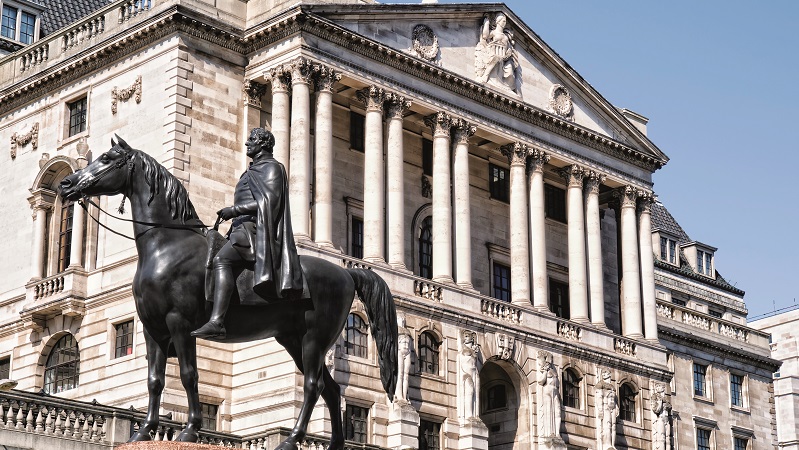The Bank of England has kept rates on hold, as widely anticipated, saying its existing stance on policy “remains appropriate”.
The bank’s Monetary Policy Committee (MPC) voted unanimously in its meeting on Wednesday to keep the rate at 0.1%. Friday marks one year since the BoE’s decision to cut rates to that level.
It also voted unanimously for the BoE to maintain the stock of sterling non-financial investment-grade corporate bond purchases at £20bn, and to continue with its existing programme of UK government bond purchases to reach £875bn by the end of the year.
Inflation expectations remain ‘well anchored’
The MPC statement noted CPI inflation is expected to return swiftly to around the 2% target in the spring, as the effects of previous falls in oil prices drop out of the annual comparison, reflecting recent increases in energy prices.
“These developments should have few direct implications for inflation over the medium term, however. Inflation expectations remain well anchored.”
It added: “The MPC will continue to monitor the situation closely. If the outlook for inflation weakens, the committee stands ready to take whatever additional action is necessary to achieve its remit.
“The committee does not intend to tighten monetary policy at least until there is clear evidence that significant progress is being made in eliminating spare capacity and achieving the 2% inflation target sustainably.”
BoE notes rising bond yields
The MPC sounded more positive on the prospects for the economy than in February’s forecast, noting developments in global GDP growth were stronger than anticipated, and the US fiscal stimulus package should provide additional support to the outlook.
“In part reflecting this and alongside positive news on some vaccination programmes, advanced economy longer-term government bond yields have risen rapidly to levels similar to those seen shortly before the pandemic,” it said.
Aberdeen Standard Investments senior economist Luke Bartholomew said it was interesting the bank did not follow the European Central Bank (ECB) in trying to push back against the recent increase in global bond yields.
Last week the ECB kept policy unchanged but said bond purchases as part of its €1.85trn pandemic emergency purchase programme would be “conducted at a significantly higher pace” over the next three months.
Bartholomew said: “Instead, the Bank [of England] seems relatively comfortable with the idea that the market moves reflect an improving growth and inflation outlook rather than an adverse and undesirable tightening in financial conditions.
“Indeed, the bank hinted that its current short term growth forecasts will need revising higher in light of the relative strength of the January GDP report and the planned lockdown easing path.”
JP Morgan Asset Management global market strategist Hugh Gimber said: “The bank will be keeping one eye on the recent rise in gilt yields to ensure that this doesn’t put the brakes on the recovery, although this will not be a major concern provided it reflects continued improvements in the economy.
“If intervention is required at a later date to steady the bond market, increased asset purchases would likely be the preferred option in the policy toolkit. Deposit rates already sit at record-low levels, but British savers may take some solace in the prospect of negative rates being deployed this year receding further.”










